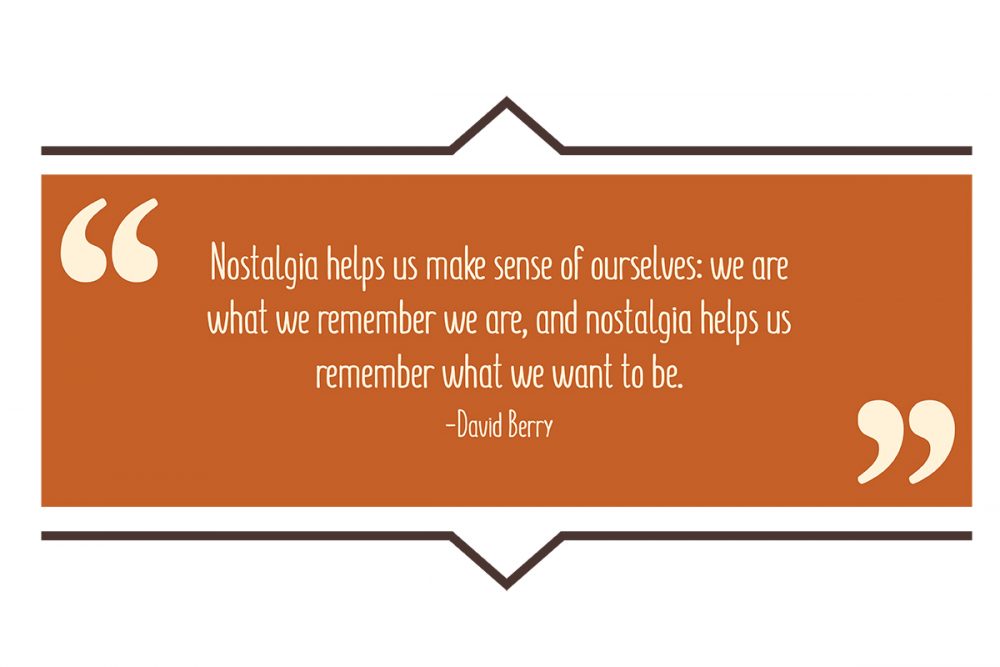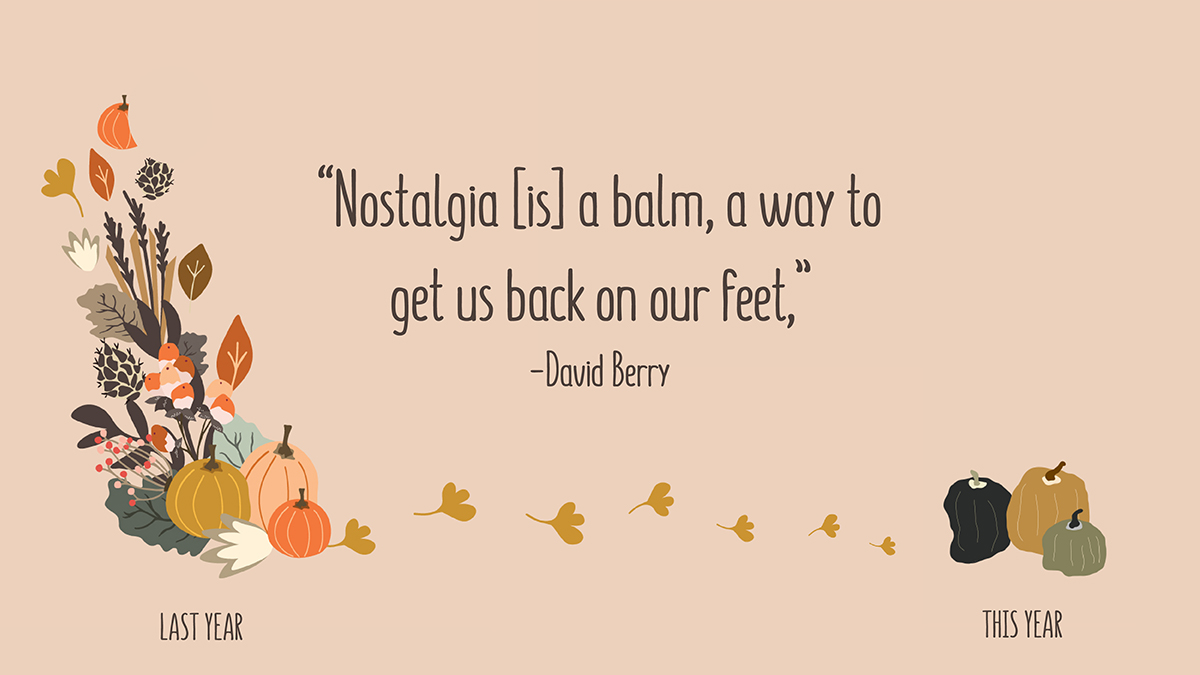Understanding holiday nostalgia and trying to bring it back
I have a confession: holidays have stopped feeling real to me, and I know I’m not alone.
Each year fall rolls around, and I think to myself, “This is it. This is the year I pull out all the decorations, all the crafts, all the scary movie marathons, and I truly celebrate the changing of the leaves in preparation for my favourite holiday — Halloween.” Except what really happens is I blink and emerge in mid-November, confused, eyes bloodshot from midterms and lack of sleep, completely disassociated temporally from any holiday. What did I even do for Halloween? Why is Nov. 1 officially when Christmas music starts playing in stores? Why don’t holidays feel like they mean anything anymore? Surely I didn’t have this issue as a kid.
Elementary school was a blessed, simpler time when someone else did the holiday decorating and planning. October meant a month of crafts, movies, and learning about holiday origins that took no effort on your part. Finally, Halloween would roll around, and it would be socially acceptable (as in, almost a requirement) that everyone dress up. The entire day was dedicated to celebrating, going to the Halloween dance, and scoping out the best costumes. Costumes were tailored to childhood interests, like unicorns, cartoons, and clowns, and girls weren’t limited to only sexualized getups. (Don’t get me wrong, everyone loves a sultry costume once in a while, but at least offer a variety for those who aren’t interested!) And when the sun started to set, there was no question of whether or not you were going trick-or-treating, it was a matter of how you and your friends were going to come home with the largest stockpile of candy possible.
Scouring the internet for validation in this matter proved fruitful. Some people go so far as to say that Halloween is dying and that, even under normal circumstances, not nearly as many kids are seeking treats door-to-door anymore. Others lament that Oct. 31 doesn’t feel like Halloween at all and question whether they did enough to celebrate. There’s even a thread on a Halloween-dedicated forum of comments that echo my thoughts that the yearly excitement is just missing. The same phenomenon has been reported for other holidays by numerous sites heralding how to make December feel more “Chrismassy.” Where have the festive feelings gone, and is there any way to revive them? To understand this growing phenomenon, we have to turn to nostalgia, which, during the anxiety-ridden times of a pandemic, is understandably rampant. When the present is uncertain, what better place to escape to than the past? We gaze backward in time to try to understand our present situation, with mixed results.
To understand this growing phenomenon, we have to turn to nostalgia, which, during the anxiety-ridden times of a pandemic, is understandably rampant. When the present is uncertain, what better place to escape to than the past? We gaze backward in time to try to understand our present situation, with mixed results.
The concept of nostalgia has the power to be both a source of comfort and a force of debilitating grief for what’s been lost. If it’s believed that the best years of one’s life have already been lived, then it leans more toward an unproductive pastime. And in truth, nostalgia didn’t always have a positive connotation. According to On Nostalgia, a non-fiction book entirely on the titular phenomenon, it was a term coined in 1688 by a Swiss medical student to describe a malady of homesickness. Over time it morphed from a pathologized term to describe soldiers who longed for their homeland to one of cultural reverie that evokes yearning for a different time or place. Today, nostalgia’s ability to influence people has already been well-established in marketing, with companies capitalizing on “nostalgia advertising” as a way to manufacture a sense of enchantment with products.
What On Nostalgia offers is the idea that it’s unfair to consider nostalgia as a waste of time or solely the act of daydreaming. When we’re distressed, it can actually be a way to reconfirm our identity or seek out a sense of authenticity in our lives. By examining who we were, we can try to make sense of who we are in the present, and we can begin to reconnect with the values and events that we yearn for.
“Nostalgia [is] a balm, a way to get us back on our feet,” as author David Berry puts it.
With all this in mind, I vowed to make it different this year, as is doomed tradition — despite the pandemic making several get-togethers and fall activities impossible and despite the fact that trick-or-treating won’t be the same (or safe) due to COVID-19. (Yes, normally I take advantage of free candy and an excuse to show off my costume. No, I will not be going this year because of the health risk.) I devised a plan, an experiment almost, to see if I could make Halloween feel real again, once and for all. Maybe through examining and sitting with my own nostalgia I could use it productively to realign myself with what made me long for “ye days of old.”
To do this, I had to go back to the basics. What made this particular holiday feel special when I was younger? I divided this into categories: decorations, learning about the history, activities, seasonal food, and media. For each of these, I came up with a list of things that inspired me and got me excited. Every person will have their own personal list. Mine included sipping chai tea, carving pumpkins, and watching as many horror movies as I could.
Next, I added no additional pressure on myself to follow a set schedule to cram in as much “fun” as possible into October. If I had some free time in the evening I looked at my personal list of things that interested me, and usually I could find something that fit into my schedule. I made sure to plan activities ahead of time with people inside my social bubble so I could make a tangible commitment to leave the house and take a study break.
Alternatively, I also used procrastination to my advantage. We all have times we want to put off our homework for one evening to binge watch a series — instead of opting for Netflix by default, I was more selective about what I wanted to do while procrastinating. For something low commitment I’d watch an episode of Over the Garden Wall or start a retro cartoon special. (It’s the Great Pumpkin, Charlie Brown, anybody?) If I was studying, I would listen to an autumn study playlist or an hour of Halloween lo-fi music from YouTube. If I had a long drive, I would put on an audiobook or a creepy podcast like NoSleep to pass the time. Procrastinate smarter, not longer.
So, what were the results of this haphazard experiment? Was I suddenly bursting with enthusiasm and vigor for Halloween, wondering why I hadn’t done this sooner? The answer is yes and no. It definitely felt like fall because I did fall activities, but my feelings of Halloween festivity weren’t exactly there because I focused less on doing Halloween-specific activities (planning a costume, making plans for the night of, decorating, etc.).
However, the reason why I began to appreciate that it was fall wasn’t just because of the activities I was doing; it shouldn’t be underestimated that I was also making an effort to live with intention and to be more present. I was less concerned about checking things off my list and more so interested in the process of what I was doing. If I sat down to make an evening out of carving pumpkins, I immersed myself in it. Even the simple act of going for a walk can make you aware of the beauty of the different coloured leaves, the change of weather, and the crispness in the air.
If I had to singularly isolate what makes the holidays feel less real as an adult, it would be the fact that we’re so busy we barely keep track of what day of the week it is. We’re rushing to finish all our assignments, juggle work on top of that, and try to maintain some semblance of a social life. The rat race of life leaves little time for leisure, festivities, or allowing your feelings to catch up with the seasons. Instead, it feels like the passage of time is numbing.
That’s not to say it’s impossible to get into the holiday mood when you’ve got a lot going on, but it takes coordinated effort. Maybe it means you schedule free time into a busy day — blocking off a time slot where you bring your awareness back to the moment and try to temporarily forget all the encroaching deadlines. Maybe it means sneaking in little festive moments whenever and wherever you can, like cracking open a book on your commute or sipping that pumpkin spice latte at your job. Or maybe it involves trying to physically interact with your world more to remind yourself that you’re here, right now, in the present.
Nostalgia is powerful in that it gives us context for our present even though we’re fleetingly disassociating from it. It can be used to uplift ourselves, or to realize we aren’t where we want to be. Becoming more aware of how we’re using our nostalgia (to shame ourselves or to motivate ourselves) can make all the difference in how we’re able to move on from our past — if we focus on what we can’t alter, we’ll miss out on how we can change our future.
As On Nostalgia puts it: “Nostalgia helps us make sense of ourselves: we are what we remember we are, and nostalgia helps us remember what we want to be.”
Halloween is right around the bend, and my pseudo-experiment comes to a close. Mark my words that this isn’t the end of holiday nostalgia though: Christmas is about to be all-consuming. While we still have the calm before the storm, take time to reflect on the role of sentimentality in your life. What can you learn from the ghosts of Christmases past? Despite the confines of a pandemic, what are you able to cultivate this upcoming holiday season? You might not be able to control the festivity of your feelings, but you can at least breathe and sit with them.
(Shara Hamed/The Cascade)
Chandy is a biology major/chemistry minor who's been a staff writer, Arts editor, and Managing Editor at The Cascade. She began writing in elementary school when she produced Tamagotchi fanfiction to show her peers at school -- she now lives in fear that this may have been her creative peak.


